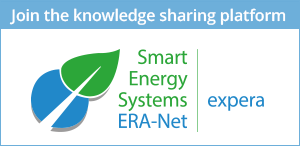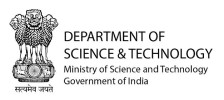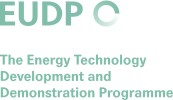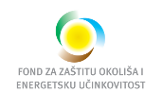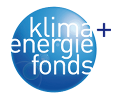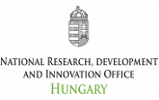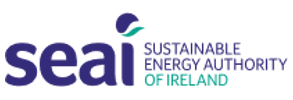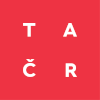EUSEW Policy Conference: Joint Programming Platforms driving clean energy innovation
Please find the full documentation of the session here and the presentation slides here for download on expera for registered members. Find a full web stream of the session on the EUSEW event page here.
PURPOSE OF THE EUSEW POLICY CONFERENCE SESSION
On 18 June 2019, OCEANERA-NET COFUND, SOLAR-ERA.NET, and ERA-Net Smart Energy Systems (ERA-Net SES) co-organised a policy conference on topic "Joint Programming Platforms driving clean energy innovation”, initiated by the European Commission, in the framework of EUSEW 2019. The conference brought together a total of 65 interested participants, such as policy makers, impact network managers, industry associations, public-private partnerships, and funding agencies.
ERA-Nets are transnational networks of national funders. ERA-Net initiatives have proven that involving and linking partners from governments, industry and academia in transnational collaborative funding actions is a key to accelerate clean energy innovation These networks could be developed thanks to support from the EC since FP6. The event focused on the future role of Joint Programming Platforms (JPP) in implementing the European Strategic Energy Technology (SET) Plan. Whether these approaches can be considered as role models for the future was discussed during the session.
SUMMARY OF EUSEW POLICY CONFERENCE SESSION
The session was moderated by Ludwig Karg (CEO B.A.U.M. Consult, Knowledge Community of ERA-Net SES, the Joint Programming Platform for Smart Energy Systems) and started with an introduction by Haitze Siemers (DG Energy, Head of Unit for "New energy technologies and innovation”) on member states’ co-operation to imple-ment the SET-Plan experiences, expectations and outlook on Joint Programming Platforms. Afterwards, Michael Hübner (Ministry of Transport, Innovation and Technology, Austria (bmvit), Vice Chair of ETIP SNET Governing Board and Chair of NSCG) presented the concept of "Transnational Joint R&D Programming - Challenges and solutions to speed up the energy transition” with the example of ERA-Net SES.
After the presentations, the conference was organised around a permanent panel represented by different transnational networks of national funders presenting their view on Joint Programming Platforms:
- Karen Fraser (OCEANERA NET Coordinator, Scottish Enterprise)
- Fredrik Lundström (Swedish Energy Agency, Programme Manager at Swedish Energy Agency, Co-Chair of ERA-Net SES, the Joint Programming Platform for Smart Energy Systems)
- Hans-Günther Schwarz (JPI Urban Europe)
- Christoph Hünnekes (Forschungszentrum Jülich PtJ, Head of Photovoltaics)
Further, three interactive thematic sub-panels shaped the discussion on the topics of "Cooperation”, "Integration”, and "Framing”.
Thematic panel on cooperation
The "cooperation” sub-panel considering public private partnerships for research, development and innovation, started with an impulse by Jatta Jussila (CEO CLIC Innovation Ltd, ERA-Net SES) on CLIC’s activities as one example of a public-private partnership recommending that it is crucial to engage industry first and then public money will follow, as it is the industry that is eventually implementing the results. The sub-panel was graced by Karl Waninger’s (Head of Department "Intelligent Transport and Distribution Grids”, Projektträger Jülich PtJ) view on the challenge as being member of the ERA-Net SES calls and the benefits of channel funding efficiently into transnational projects. Luciano Martini (Coordinator of EERA JP on Smart Grids, Co-Lead Mission Innovation IC1 Smart Grids, RSE) is a big fan of joint programming and international cooperation – and asks why not join forces? Further, he emphasis the private sector needs to be fully engaged.
Thematic panel on integration
Afterwards, "integration”, namely vertically and transversally linking sectors for a sustainable energy system was discussed, starting with an introduction by Karina Barnholt Klepper (Senior Adviser, Nordic Energy Research) on the work of the ERA-Net SES Call Management, of which Nordic Energy Research is a relevant actor. RIGRID, a finished ERA-Net SES project, recently won an ISGAN prize in Vancouver. Bartlomiej Arendarski (Fraunhofer IFF, part-ner of RIGRID project) shared his positive experience on project implementation of a project dealing and planning a net-zero energy district and what has been done to fulfil the Joint Programming Platform’s vision. Nikos Hatziargyriou (Chairman of HEDNO S.A., Chairman of ETIP SNET) displays the "European Technology and Innovation Platform Smart Networks for Energy Transition”’s (ETIP SNET’s) future system vision 2050 for European Networks. Frederik Loeckx (Managing Director, Flux50) presents how FLUX 50, a public-private partnership in Flanders. With reference to an orchestra, he emphasises, firstly, that as well in projects and in a Joint Programming consortium with many different insights a "conductor” is needed to achieve a harmony. Moreover, timing is also an issue. Secondly, there is a need for trust.
Thematic panel on framing
"Framing”, namely establishing and maintaining regulatory and structural frameworks for energy transition, was the third thematic sub-panel. Susanne Karlsson (Head of Department "Sustainable Power, Research and Innova-tion”, Swedish Energy Agency) appreciates the previous discussion and adds the perspective of opportunities for projects applying for funding with Joint Programming Platforms. Fernando García Martinez (Co-Chair of NSCG ETIP SNET, Chair of GICI, Steering Committee Member of Futured, Grupo Naturgy) raises the voice for national and regional platforms. Based on a survey, there appear to be four principles for framing JPPs, namely simplicity, har-monisation, flexibility, and complementarity.
Wrap-Up
Eventually, the policy conference was wrapped-up by Haitze Siemers and Michael Hübner with concluding remarks on the future of Joint Programming Platforms. The policy conference session was considered as an important starting point for dialogue linking different stakeholders on all levels, such as EU level representatives, industry sectors, national funding programmes, platforms, national research institutes, local authorities and citizens. Haitze Siemers added that the JPP approach enables to clarify what the needs are, what shall be achieved, and what the tools could be to achieve the energy transition. Especially, the role of citizen integration and constellations with public and private sector actors has been highlighted.
Please find the full documentation of the session here and the presentation slides here for download on expera for registered members.
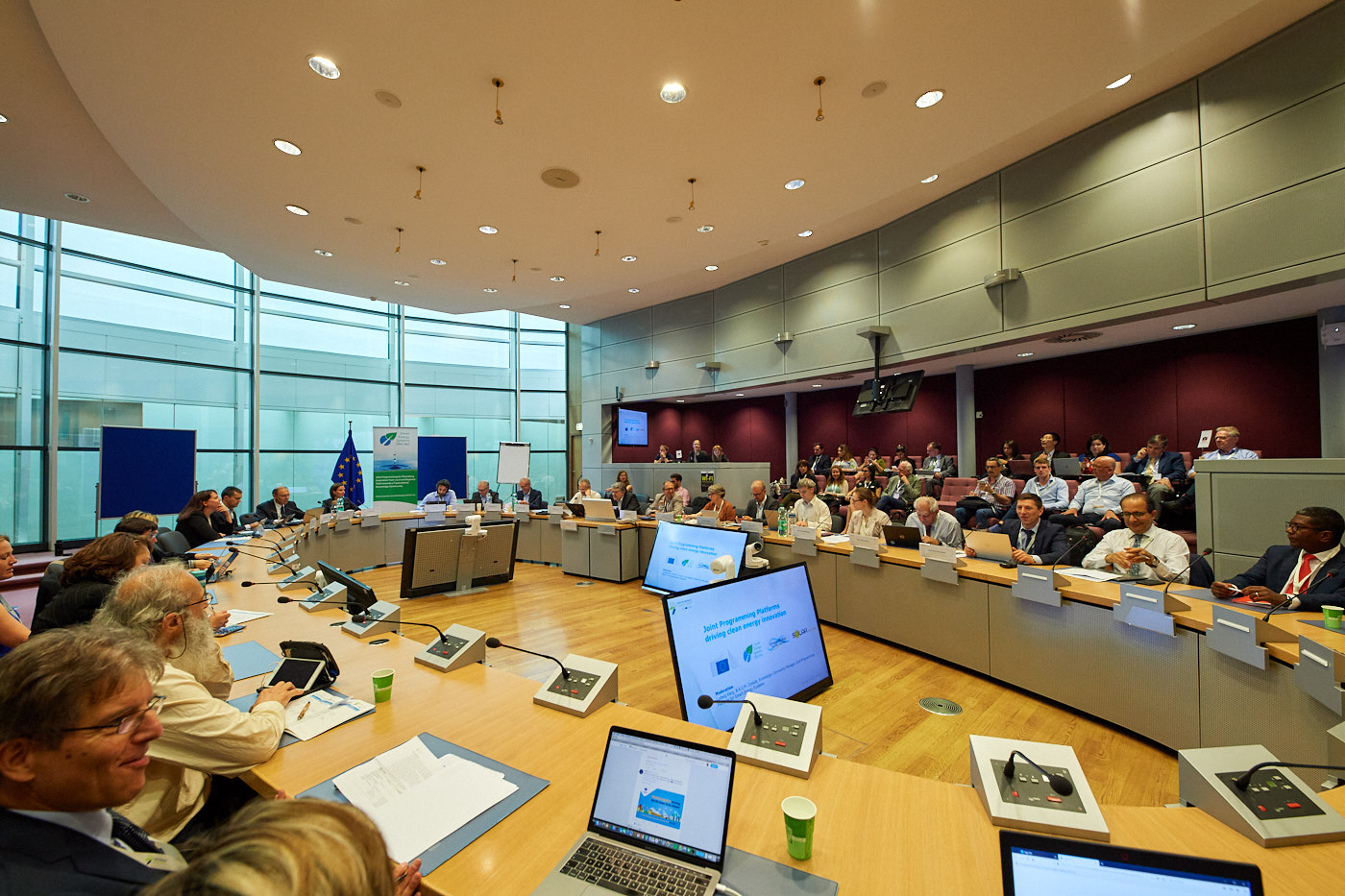
Picture: EUSEW panel on Joint Programming Platforms driving clean energy innovation (©European Union, 2019)
 Picture: EUSEW panel on Joint Programming Platforms driving clean energy innovation (©European Union, 2019)
Picture: EUSEW panel on Joint Programming Platforms driving clean energy innovation (©European Union, 2019)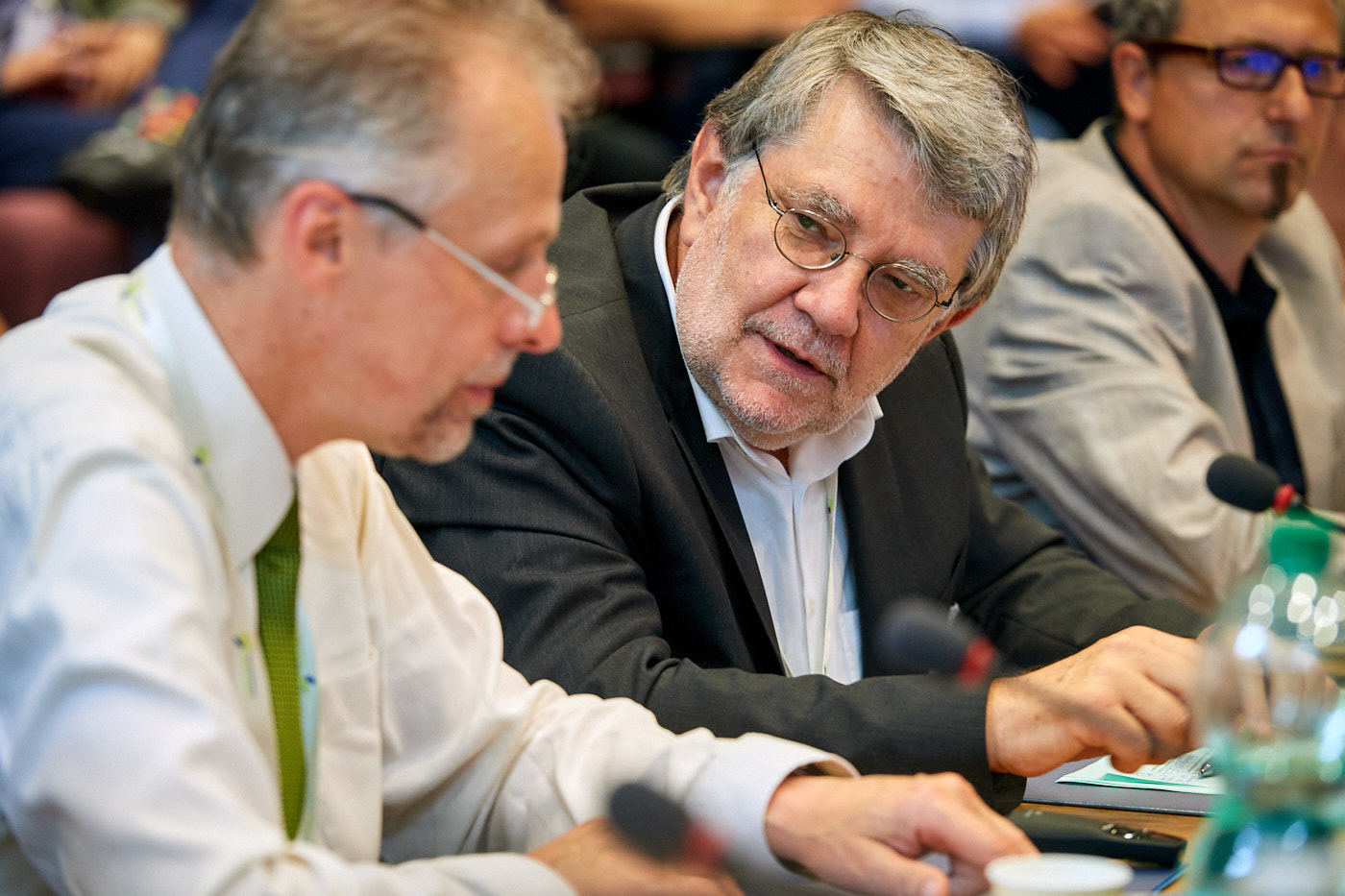 Picture: Haitze Siemers, DG Energy, Head of Unit for "New energy technologies and innovation”, Ludwig Karg, B.A.U.M. Consult, Knowledge Community Manager ERA-Net SES (©European Union, 2019)
Picture: Haitze Siemers, DG Energy, Head of Unit for "New energy technologies and innovation”, Ludwig Karg, B.A.U.M. Consult, Knowledge Community Manager ERA-Net SES (©European Union, 2019)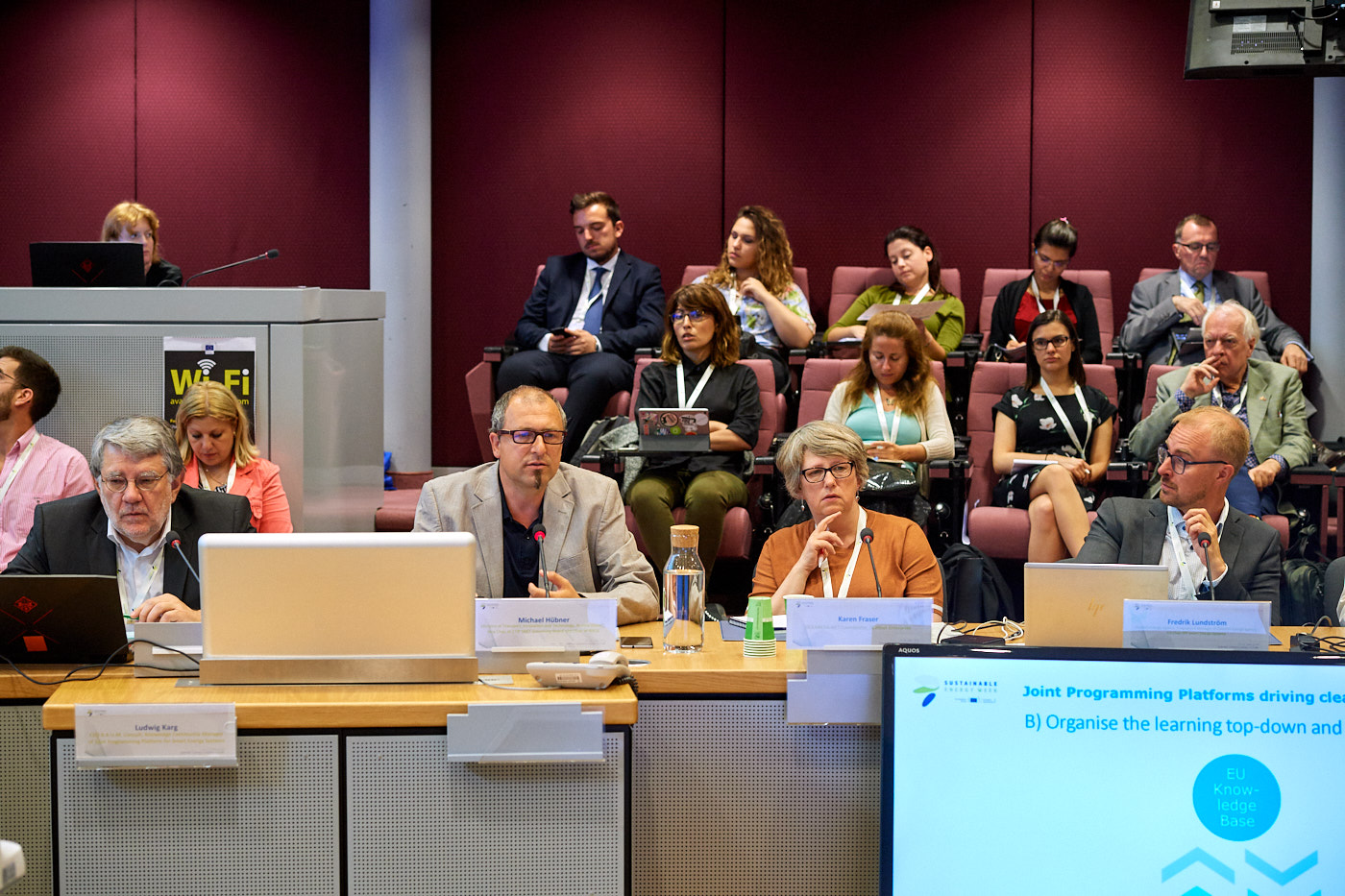
Picture: Ludwig Karg, B.A.U.M. Consult, Knowledge Community Manager ERA-Net SES; Michael Hübner, Ministry of Transport, Innovation and Technology, Austria (bmvit), Vice Chair of ETIP SNET Governing Board and Chair of NSCG; Karen Fraser, OCEANERA-NET Coordinator, Scottish Enterprise, OCEANERA-NET; Fredrik Lundström, Swedish Energy Agency, Programme Manager at Swedish Energy Agency, Co-Chair ERA-Net SES (©European Union, 2019)
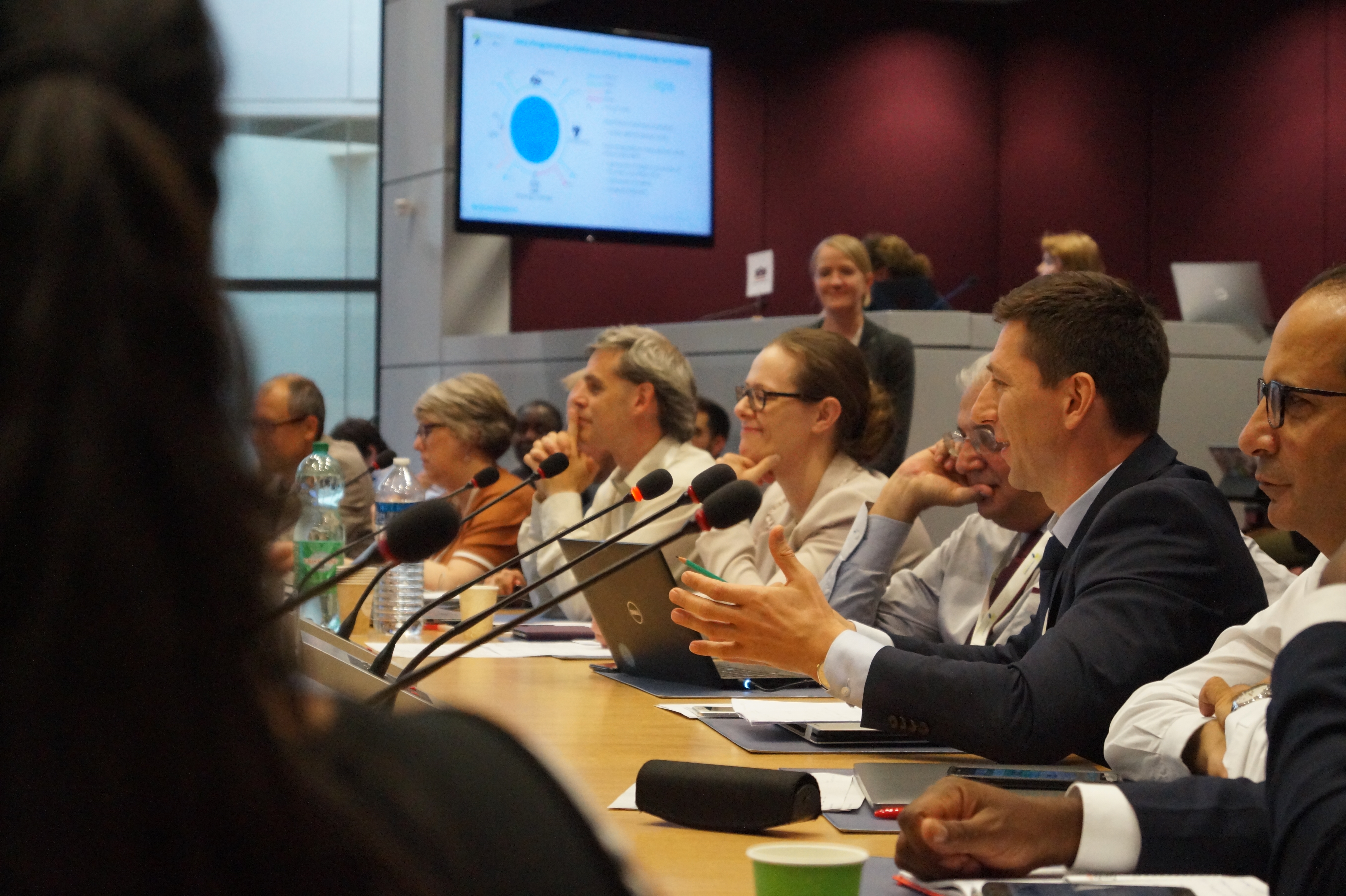
Picture: Karen Fraser, OCEANERA-NET Coordinator, Scottish Enterprise, OCEANERA-NET; Frederik Loeckx, Managing Director at Flux50; Karina Barnholt Klepper, Senior Adviser, Nordic Energy Research (NER); Nikos Hatziargyriou, Chairman of HEDNO S.A., Chairman of ETIP SNET; Bartlomiej Arendarski, Fraunhofer IFF, RIGRID project (winner of ISGAN prize in Vancouver)
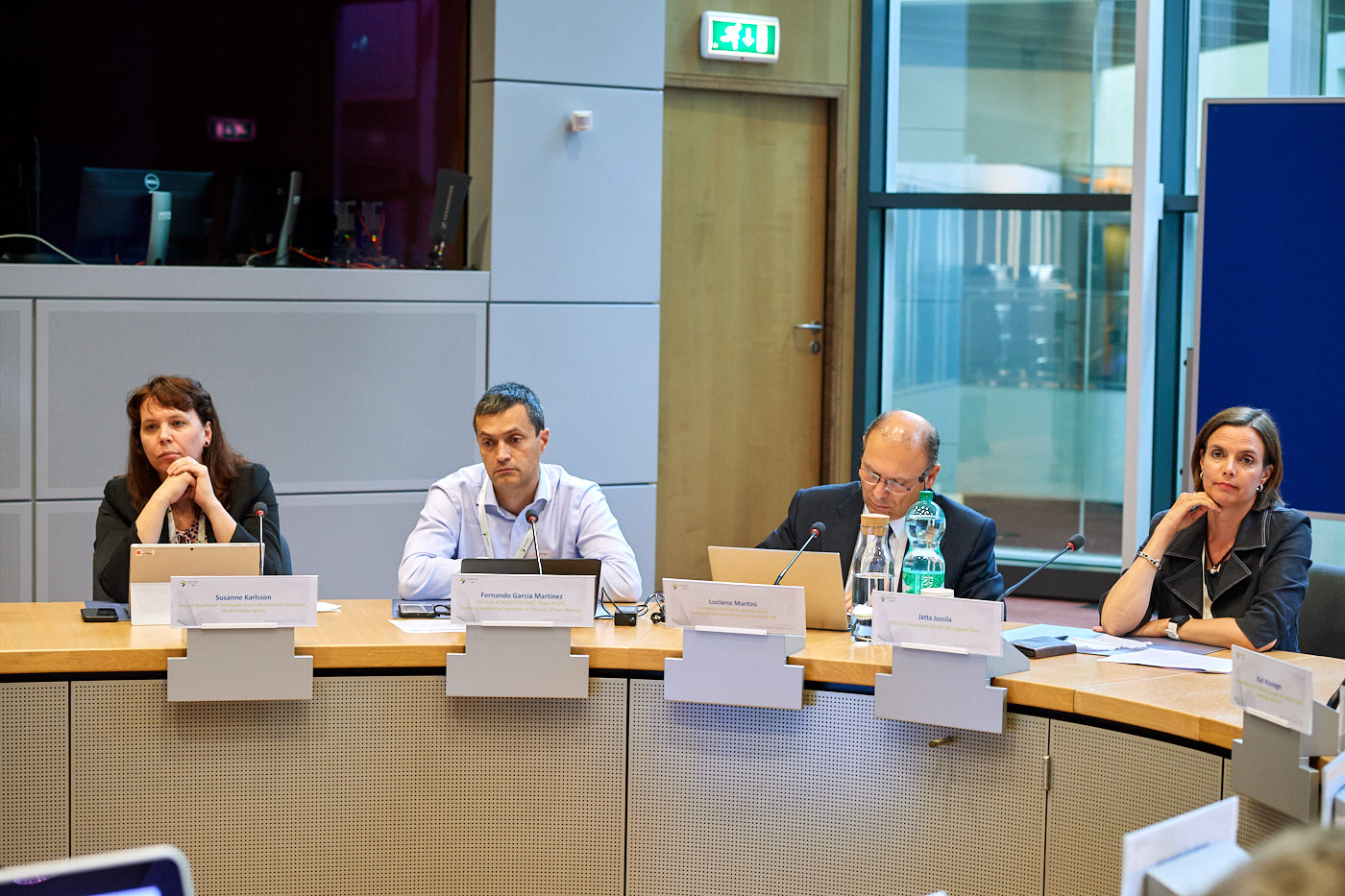 Picture: Susanne Karlsson, Head of Department "Sustainable Power, Research and Innovation”, Swedish Energy Agency; Fernando García Martínez, Co-Chair of NSCG ETIP SNET, Chair of GICI, Steering Committee Member of Futured, Grupo Naturgy; Luciano Martini, Coordinator of EERA JP on Smart Grids, Co-Lead Mission Innovation IC1 Smart Grids, RSE; Jatta Jussila, CEO CLIC Innovation Ltd, ERA-Net SES Support Team (©European Union, 2019)
Picture: Susanne Karlsson, Head of Department "Sustainable Power, Research and Innovation”, Swedish Energy Agency; Fernando García Martínez, Co-Chair of NSCG ETIP SNET, Chair of GICI, Steering Committee Member of Futured, Grupo Naturgy; Luciano Martini, Coordinator of EERA JP on Smart Grids, Co-Lead Mission Innovation IC1 Smart Grids, RSE; Jatta Jussila, CEO CLIC Innovation Ltd, ERA-Net SES Support Team (©European Union, 2019)BACK TO NEWS OVERVIEW
